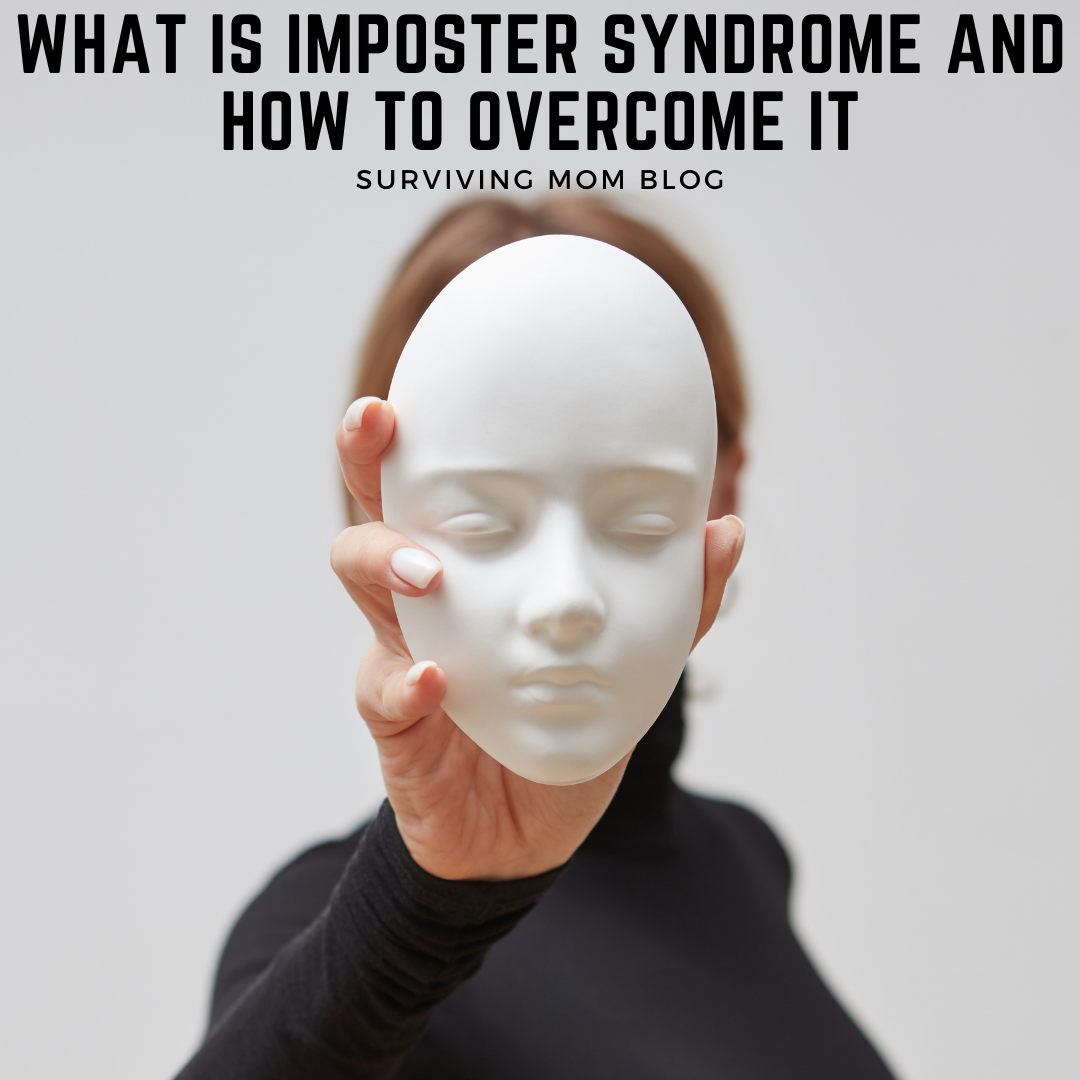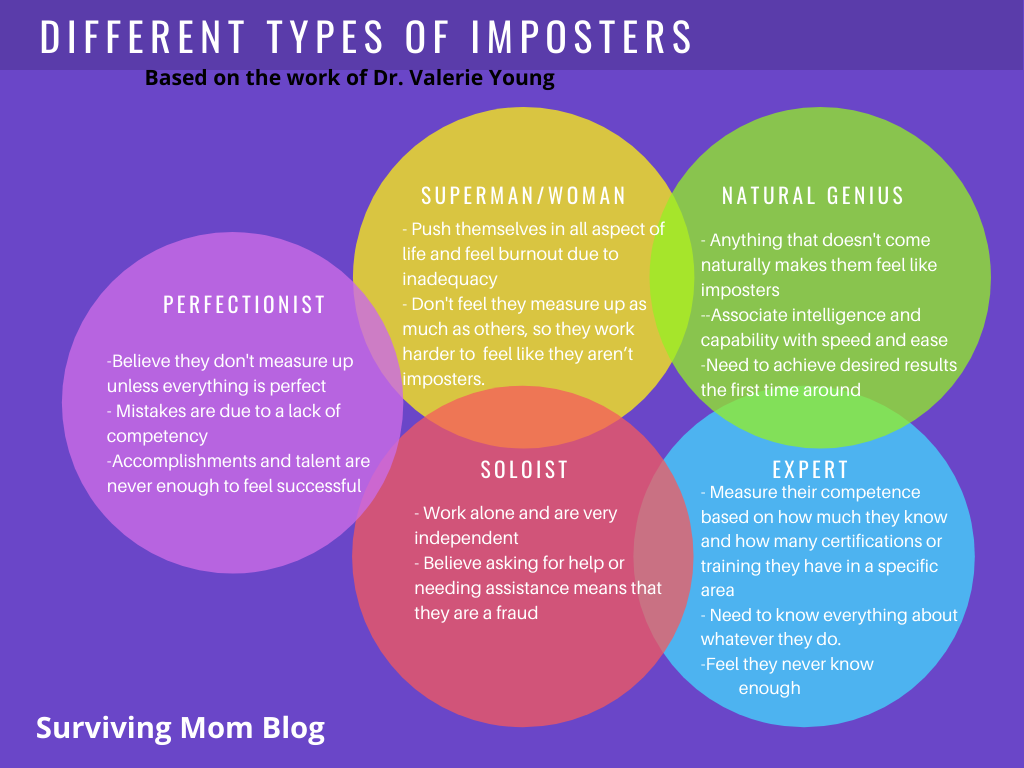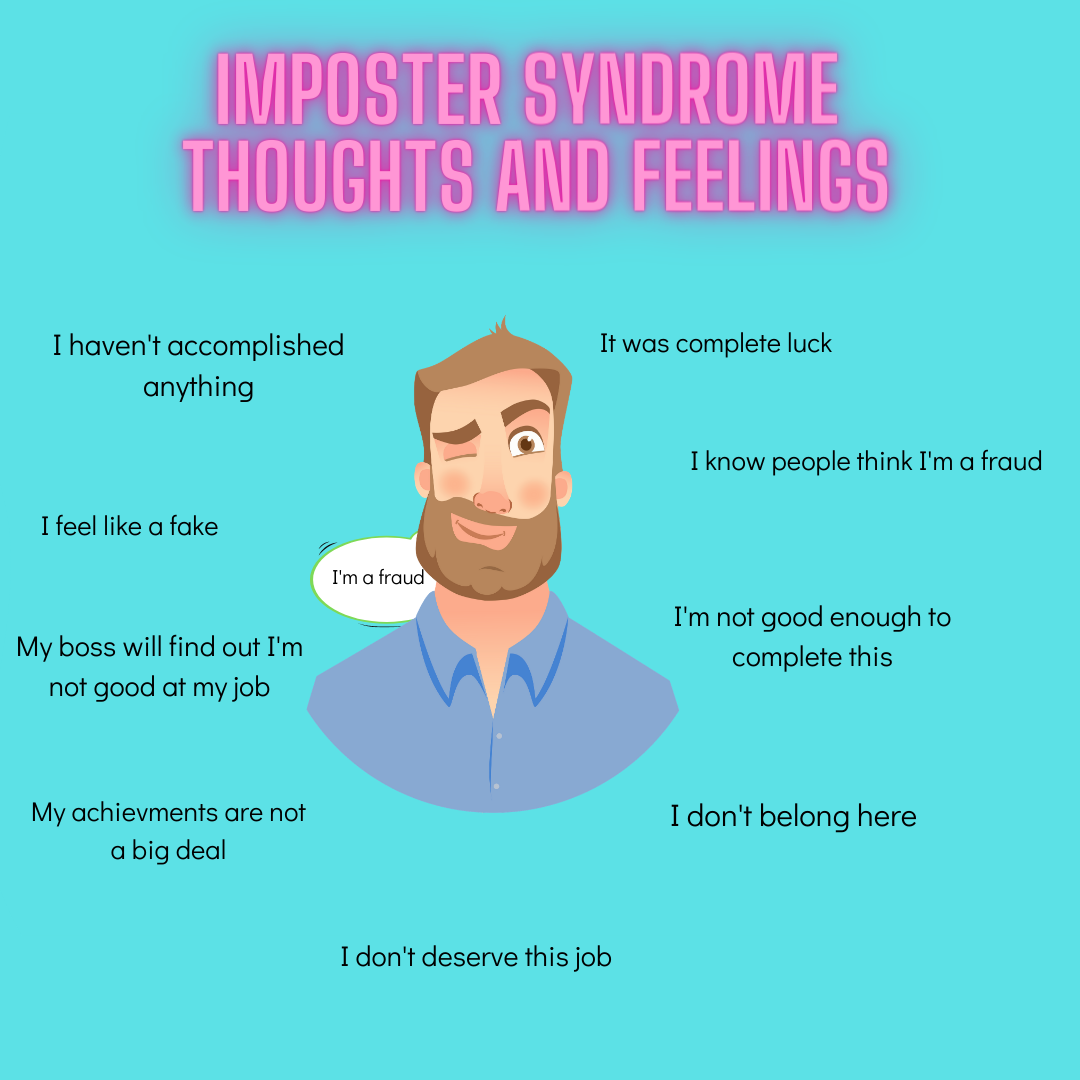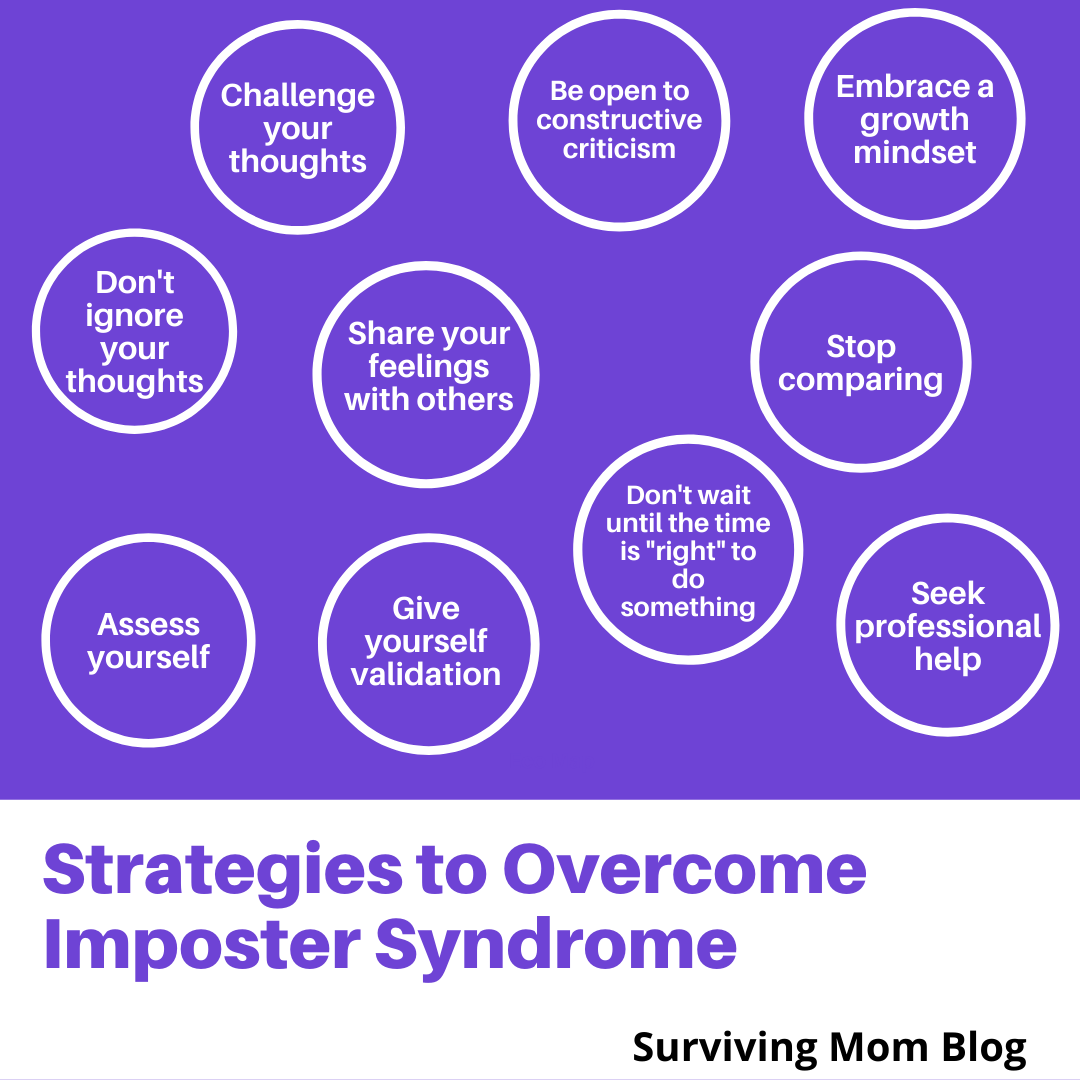
I am Randi, and I am an imposter. Yes, it’s true. I graduated with a nearly perfect GPA in undergraduate and graduate school. However, when I worked in the schools as a Speech-Language Pathologist, I didn’t feel competent. Everyone else seemed so confident in their abilities, but I felt like a phony. When I started writing, I felt like a fraud in that area as well. I compare myself to other people who have more followers and feel like I am not as capable as them. I feel anxiety because no matter how hard I try, I’m not good enough at anything I do…. This exemplifies the thinking of someone with imposter syndrome, and this post will help you to overcome it.
what is imposter syndrome?
Imposter Syndrome is the idea that your accomplishments are merely a façade. You feel like you are inadequate and incompetent despite your talent and abilities. Success and achievement are not a reflection of your qualifications and skills; instead, it is proof of being a phony and/or merely having good luck. These types of thoughts can be very obtrusive and sometimes debilitating. As someone who has struggled with this way of thinking (see above paragraph), I know imposter syndrome quite well.
This concept was first described by psychologists Suzanna Imes and Pauline Rose Clance in the 1970s. They believed that this way of thinking only applied to high-achieving women. Imposter Syndrome Expert, Dr. Valerie Young, has since discovered that imposter syndrome is experienced by both men and women. Furthermore, nearly 70% of people experience this at some point in their lives (verywellmind.com, 2018). If you have difficulty feeling deserving of your achievements, then you are one of the many people that struggle with imposter syndrome.
People with imposter syndrome usually have a cyclical way of thinking. They don’t think they are qualified to do tasks properly. This will cause the person to experience anxiety and to overly prepare and/or procrastinate. When the task is successful, they will believe their perfectionistic tendencies (overly preparing) or sheer luck (procrastination) was the cause. This reinforces their way of thinking to minimize their success and feel unqualified. As a result, the person will continue to feel fearful of being exposed as not good enough.
THE DIFFERENT TYPES OF IMPOSTERS

In Dr. Young’s book, The Secret Thoughts of Successful Women: Why Capable People Suffer From the Impostor Syndrome and How to Thrive in Spite of It, she classifies imposter syndrome into 5 different types. These types have overlapping characteristics, so a person may fall into more than one type (themuse.com, 2020):
The Perfectionist
People who are perfectionists feel like they don’t measure up unless they do everything perfectly. The feeling of inadequacy due to impossible standards goes hand-in-hand with feeling like you are an imposter. Perfectionists feel that it is a lack of competency that is responsible for any mistakes. No matter the accomplishments and talent, it is never enough to make a perfectionist feel like they are successful.
As someone who is a recovering perfectionist (and one who often falls off the wagon), I know these feelings all too well. It is a vicious cycle of perfectionism causing one to feel like an imposter, and imposter syndrome causing one to try to be perfect.
The Superwoman/Superman
These individuals push themselves in all aspects of life. They often experience burnout due to feelings of inadequacy. They feel they don’t measure up as much as others, so they work harder to try to prove they aren’t imposters.
The Natural Genius
Those who fall under this category believe that anything that doesn’t come naturally to them means they are imposters. They associate intelligence and capability with speed and ease. They have high standards that are similar to perfectionists. However, instead of solely placing value on results, they also focus on whether they get the desired results the first time around.
The Soloist
These individuals work alone and are very independent. They believe that asking for help or needing assistance is an indication of being a fraud.
The Expert
Those who fall under this type measure their competence based on how much they know and how many certifications or trainings they have in a certain area. They believe they need to know everything about whatever they do. As a result, they will always seek to know more and get more credentials out of fear of being exposed as a fake. They feel they never know enough, and they are never satisfied with their level of knowledge.

Strategies to Overcome Imposter Syndrome
(1) Do not ignore your thoughts
It might be tempting to push those pesky feelings to the back of your mind, but that actually can do more harm than good. It is okay to experience doubt, but you get to decide what you do with those feelings. Allow yourself to acknowledge your thoughts.
(2) Challenge your way of thinking
Now that you have taken the time to gather your thoughts, you can now put them in perspective. What are you telling yourself that makes you feel like an imposter? Is that belief actually true? If not, how can you reframe your thoughts?
For example, if you feel asking questions is an indication of inadequacy, remind yourself that asking questions help us to grow and learn. Furthermore, if you have a question, it is possible (and likely) that someone else does as well. Other ways to reframe your thoughts are that some things require practice to gain further understanding, and mistakes are a part of learning (verywellmind.com, 2018).
I had a core belief that I was not good enough if I didn’t do everything perfectly. When I took the time to challenge my thoughts, I realized that I was setting myself up for failure. None of us are perfect, and doing my best is all I can do. That doesn’t make me an imposter; that makes me human.
(3) Assess yourself
Make a list of your talents and your skills. Based on your list, do you still feel your success is based on luck? Whenever you feel self-doubt, pull out your list of skills.
(4) Share your feelings with others
Tell family and loved ones how you are feeling. Keeping your feelings to yourself will only perpetuate this way of thinking. Allow others to help you to put things into perspective and give you reassurance.
(5) Give yourself validation
It is a great feeling to hear praise from others, but those with imposter syndrome need to learn to acknowledge our own success. Validation needs to come from within first and foremost.
Instead of focusing on what you don’t know or didn’t do correctly, make sure to applaud yourself for all your hard work and for what you have learned. Give yourself credit for your achievements and take pride in them.
(6) Be open to constructive criticism
Remember that feedback isn’t an indication that you are a fraud. Rather, it is a way to learn more and improve (time.com, 2018).
(7) Don’t wait until it is the “perfect” or “right” time to do something
Many with imposter syndrome procrastinate out of fear of their work not being good enough. Remember that no matter how long you wait, your work will never be perfect and there is never a right time.
(8) Embrace a growth mindset
Remember we are all works-in-progress. Accepting that we all have the ability to grow and become better versions of ourselves is a way of fighting back against imposter syndrome. None of us know everything and can do everything with ease. We all require lifelong learning.
(9) Stop comparing
Looking at other people’s success can be used as a learning opportunity, but it should never be used to measure our own success. There will always be someone who knows more or does better than you at something. The only person to compare yourself with is yourself. Be the best version of yourself (verywellmind.com, 2018).
(10) Seek professional help
If you are not able to overcome imposter syndrome on your own, then there is no shame in seeking professional help. Imposter syndrome is real, and you should get the support you need to live a better quality of life.

For many of us, that voice that tells us we are imposters may never go away. That is okay. We can accept that that voice is a part of us, but that it doesn’t define us. Imposter syndrome is real, and more people suffer from it than we think.
The actual process of overcoming imposter syndrome can be slow at first. However, we can use these strategies and gain perspective to give ourselves the credit we deserve. Most people experience moments of doubt, and that is completely normal. The important part is to not let that doubt control your actions.
Success doesn’t require perfection. True perfection is impossible, so failing to achieve it doesn’t make you a fraud. Offering yourself kindness and compassion instead of judgment and self-doubt can help you maintain a realistic perspective and motivate you to pursue healthy self-growth. It is possible to overcome imposter syndrome. Like Young says, “They can still have an imposter moment, but not an imposter life” (time.com, 2018).
Disclaimer
This post may contain affiliate links. If you purchase a product via my link I may receive a small commission at no additional cost to you. Please visit our disclaimers here





Naomi P Lane says:
I felt this very strongly last week, when I was asked to do my first ever Zoom reading of my recent book for a local organization. Even though I was a teacher for thirty years and led many professional development activities, I still got bad nerves. I had to keep telling myself that my writing was good enough to share and I would learn from the experience. Afterwords, I did feel that it went really well. However, the imposter syndrome kept telling me that I’m not a real writer, even though I’m working on my third book.
Randi says:
It’s amazing how that imposter syndrome will creep in, no matter our experience our credentials. That is wonderful that you were able to work through those thoughts and did a great job! Imposter syndrome will never go away, but we can learn to manage it and not let it control us. Kuddos to you for doing so!
Emily says:
This is me to a tee. Is it strange that I relate to all of these different categories in myself for imposter syndrome. Since becoming ill, everything only intensified. This is a very powerful piece, thank you
Randi says:
I’m glad you found this informative and helpful. So many people experience imposter syndrome, so know you are not alone!